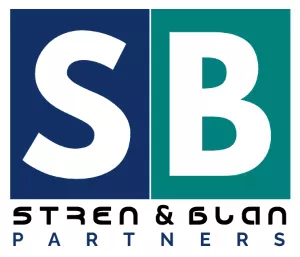INTRODUCTION
With the ease of moving goods from one country to several other countries through global supply chains comes an increase in the risks for producers and distributors. In addition to the usual financial, operational, and political risks, there has been an increase in product liability claims arising from defects in such distributed products. Given the likelihood of product defects and liability claims, producers and global distributors have developed product recall plans that ensure that products are recalled as soon as defects are discovered. However, these recalls are often limited to the jurisdiction where the defect was found
In Nigeria, for example, between 2023 and the first half of 2024, the National Agency for Food and Drug Administration and Control (NAFDAC) compulsorily recalled over thirty (30) products from the Nigerian market, with the most popular recall being a cough syrup of a major international pharmaceutical company by Public Alert No.13/2024. In most instances, products recalled in other countries including the United States of America, the United Kingdom, China, and other countries are recalled in Nigeria by NAFDAC.
In recent times, there has been an increase in product recalls in Nigeria. Compared to the total number of recalls in 2022, about 15 products, there has been over 100% increase in recalls in Nigeria. If this trajectory remains, NAFDAC recalls could reach as many as five hundred recalls a year within five years.
Product recalls cost financial and reputational damages to producers whose products are the subject of the recall. International companies may lose millions of dollars from defending lawsuits, settlements, and the loss of sales. While these losses may impair a producer in the short run; reputational damages from improperly managed product recalls may result in the complete collapse of the business.
Given the above, this article addresses the intricacies of product recall in Nigeria and the need for a comprehensive cross-border recall plan that seamlessly withdraws defective products from all countries, limiting the exposure of international companies to damages resulting from an ineffective product recall. It will also examine the legal framework for product recall, the roles and obligations of diverse stakeholders, and optimal strategies for effective recall management for products distributed globally
BACKGROUND
On 10th April, 2024, the NAFDAC issued a public notification regarding the recall of a major cough syrup in Nigeria.1 The recall was prompted by the discovery of an unacceptably high amount of diethylene glycol, a compound that has been linked to fatal outcomes in various countries since 2022, in the syrup. The presence of this toxic substance raised significant concerns among health officials worldwide due to tragic incidents of medication poisoning resulting from oral ingestion.
Diethylene glycol has been known to cause acute oral toxicity in laboratory animals and poses a serious health risk to humans when consumed.2 The potential toxic effects on humans include abdominal pain, vomiting, diarrhoea, inability to pass urine, headache, altered mental state, and acute kidney injury, which may lead to death.3
Following this discovery, NAFDAC mandated the Company to take immediate action and initiate a recall of the affected batch. NAFDAC also sent a Notice to the World Health Organization Global Surveillance and Monitoring System (GSMS) for further awareness and action. NAFDAC's recall of the product from the Nigerian market led to the recall of the drug by several other countries including South Africa, Kenya, Tanzania, Rwanda, and Zimbabwe.
PRODUCT RECALL IN NIGERIA
Given the nature of product recalls and a product recalled in other countries, like the US, can lead to a consequential recall in Nigeria, it is imperative to understand and comply with product recalls in Nigeria. The execution of an effective product recall in Nigeria, however, entails complexity and necessitates a comprehensive understanding of the legal framework. Under Nigerian jurisprudence, several legislations and regulators regulate product recalls.
National Agency for Food and Drug Administration and Control Act, CAP N.1, Laws of the Federation of Nigeria 20044
The Act establishes NAFDAC as the primary regulatory Agency for food, drugs, and related products. It further empowers the Agency to monitor product safety, investigate complaints, order recalls, impose penalties for noncompliance, require manufacturers, importers, and distributors to register their products with NAFDAC, and comply with safety and quality standards.
Section 30 of the NAFDAC Act, vests the Agency with powers to make regulations to carry out or give full effect to the provisions of this Act. In exercising its powers under the NAFDAC Act, the NAFDAC issued several guidelines and regulations covering product recalls in Nigeria. Such guidelines/regulations include the NAFDAC Good Manufacturing Practice Guidelines for Pharmaceutical Products (the "GMP Pharmaceutical Products Guidelines"), and the NAFDAC Guidelines for Inspection & Requirements for Pre-Packaged Food Manufacturing/Packaging Facilities in Nigeria (the "Food Manufacturing Guidelines").
NAFDAC Guideline on Recall and Alert
Procedure
The NAFDAC Guideline on Recall and Alert Procedure provide that the Pharmacovigilance and Post Market Surveillance (PV/PMS) Directorate is responsible for receiving, reviewing, and promptly alerting the public about safety concerns and measures related to a product in the market.5 Notifications may be disseminated to the Nigerian public through an Alert Notice and/or a Dear Healthcare Provider Letter (DHPL).
Upon reviewing the safety information received, timely alert notices and safety communication (Dear Healthcare Provider Letter) will be provided to the public and healthcare providers respectively. These alert notices and safety communications will contain safety measures and information that may impact treatment and diagnostic choices for healthcare providers and patients.
To view the full article, click here.
Footnotes
1. (2024, April 10). Public Alert No. 013/2024 NAFDAC/GOV.NG/PUBLIC-ALERT. Retrieved June 14, 2024, from https://nafdac.gov.ng/public-alert-no-013-2024-alert-on-recall-of-benylin-paediatrics-syrup-in-nigeria/.
2. (2017, July 30). Human health assessment for long-term oral ingestion of diethylene glycol Public Alert No. 013/2024 PubMed. Retrieved May 14, 2024, from https://pubmed.ncbi.nlm.nih.gov/28465071/
3. Ibid.
4. Cap N.1 LFN 2004.
5. NAFDAC (2024, February 15). Pharmacovigilance and Post Market Surveillance (PV/PMS). Nafdac.gov.ng. Retrieved July 14, 2024, from https://nafdac.gov.ng/about-nafdac/nafdacorganisation/directorates/pharmacovigilance-and-post-market-surveillance/
The content of this article is intended to provide a general guide to the subject matter. Specialist advice should be sought about your specific circumstances.




